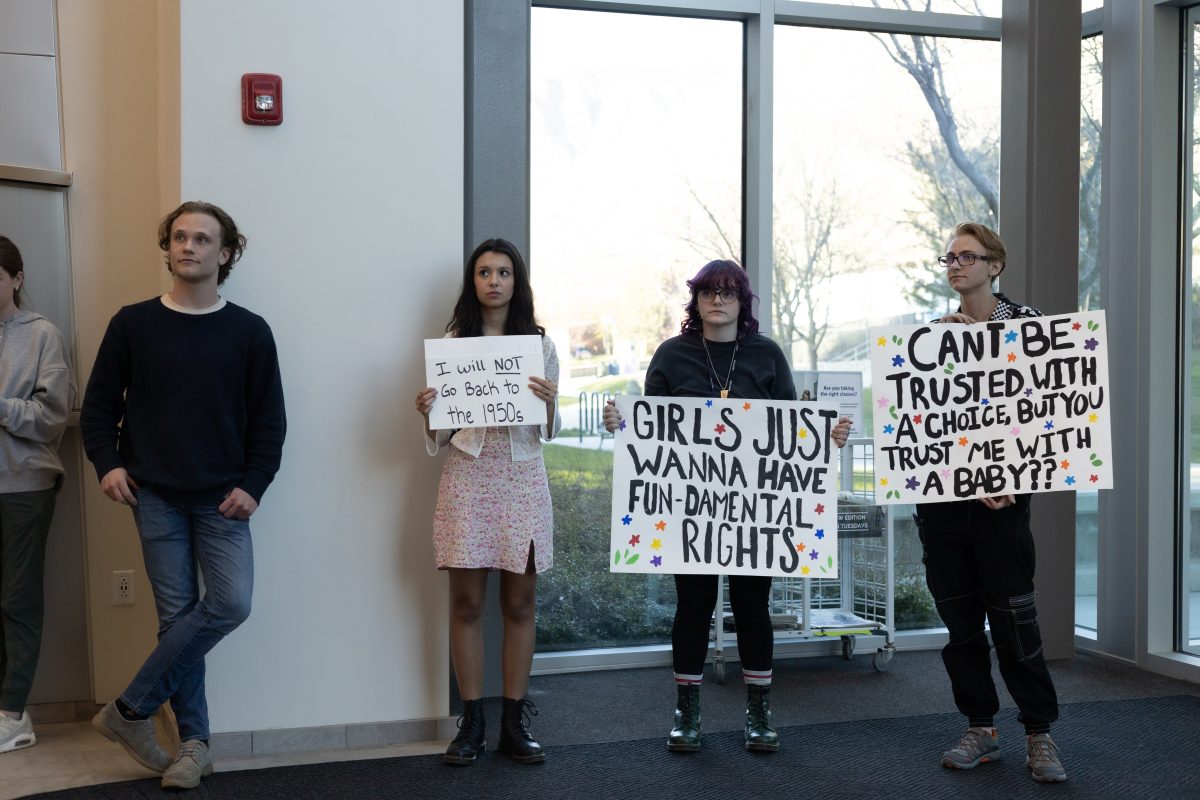A meeting was held Monday at Weber State University to educate students and community members on the importance of the caucus system and voting in local elections.
Speaker James Seamon’s main point in conducting the informational lecture was to answer students’ questions on how to get involved in the nation and state’s political process. Seamon said the most important idea to take away from the lecture was to attend local caucus meetings. Caucus meetings for both Republican and Democrat citizens will be held later this month.
“Voting for delegates is essential to the political process,” Seamon said. “Even if you do not agree with either candidate or consider yourself a libertarian or a different political party, you can still become involved and choose a neighborhood delegate to pick or nominate the candidate that you agree with the most.”
Statistics show that Utah has struggled in recent years with voter turnout, something Seamon said is a huge problem. In the 1960s, Utah had one of the highest voter turnout rates in the country, but in 2010, Utah had the second lowest voter turnout rate.
“Only Hawaii had a smaller percentage than Utah,” Seamon said. “How does Utah go from having one of the highest to the second lowest? It has a lot to do with Utahans feeling like their vote doesn’t matter.”
Seamon pointed out that in local elections, such as city council or county seats, individual votes absolutely do matter. An example of this was seen in 2011, where a city council race in Provo was decided by 11 votes.
In 2002 Jim Matheson won reelection by less than one-tenth of 1 percent of the vote. Despite Utah’s overwhelming political leanings, significant statewide elections sometimes come down to a narrow margin.
For Utahans wanting to get involved in politics, the best way to do so is to attend caucus meetings and nominate someone whose viewpoints and political agenda you agree with. Utah is one of two states that do not offer alternatives to get on the ballot. In other words, the only way to get elected into any political office is to be nominated at caucus meetings.
In 2010, Sen. Bob Bennett ran for reelection in the state senate after three terms. However, due to Utah’s unique laws, Utah Republicans decided they wanted someone else on the ballot. This was the year Tim Bridgewater and Mike Lee ended up being nominated to run for the Senate.
“This demonstrates that it does not matter how powerful you are or how long you’ve been in office,” Seamon said. “In Utah you cannot get your name on the ballot without going through the caucus and convention process.”
Another fact most Utahans might not know is that the delegates elected from each precinct are usually average people.
“It is the delegates in that district who get to choose the candidate,” Seamon said. “As few as 80 people get to pick the replacement for an entire district . . . . Make sure your voice is heard when it comes to representing your neighborhood. Go and voice your opinions on what is important to you.”
Register to vote and get information about caucus meetings at vote.utah.gov.




















